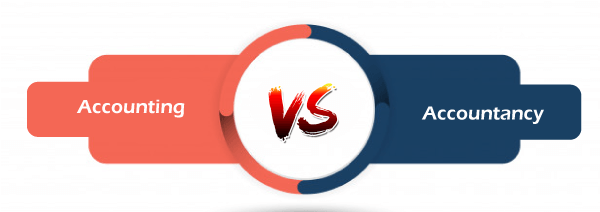Difference between Accounting and AccountancyMany firms employ several officials to look after their books. For instance, in banks and law firms, various people are given the responsibility to look after the transactions made by the customers so that any fraudulent case does not occur. People who work in these firms are either CAs (Chartered Accountants), CS, etc. Recording each and every transaction is an essential task. The government banks necessarily are responsible for ensuring that no scam happens in the country. Well, it is interesting to note that Luca Pacioli is the father of accounting. Now, in order to ensure the customer's safety, every firm records financial transactions. Today, we will discuss two similar kinds of words that are often misunderstood. They are accounting and accountancy. Seem similar. Don't they? We will be discussing about their primary definitions and their associated differences. So, let us begin. 
AccountingAccounting is the process of recording financial transactions especially regarding business. The process of accounting involves several processes like summarizing, reporting, analyzing, etc. There are four significant kinds of accounting, i.e., corporate accounting, forensic accounting, public accounting, and government accounting. All of them are quite contrasting from each other. Corporate accounting is defined as the process of handling and filling the financial data of the company for tax compliance. Forensic accounting is defined as the process of collecting and recovering the financial data of the company. Public accounting is defined as the process of ensuring the financial statements and records of their clients. And finally, government accounting is defined as the process of working with the local, state, and federal governments. There are other kinds of accounting as well, like financial accounting, management accounting, tax accounting, etc. Apart from the above-mentioned types, accounting is based on five basic principles. They are the revenue recognition principle, matching principle, full disclosure principle, cost principle, and objectivity principle. Now, what is the importance of accounting? Well, accounting is responsible for running a business. It helps in tracking income and expenditures. It also helps in making several business decisions. Accounting involves a particular set of standards and rules. The nature and limitations of financial accounting can be set through accounting principles and techniques. Accounting helps in managing the business, thereby influencing the clients in investing money in their business. AccountancyThere is not much difference between accounting as accountancy. Accountancy is defined as the process of measuring, processing, and recording non-financial and financial statements. The information is related to economic enterprises like corporations and several businesses. The types and purpose of accountancy are the same as that of accounting. In layman's language, accountancy is the process of sharing financial and non-financial information about stakeholders, investors, managers, etc. Accountancy is known as the 'language of business.' Accountancy depicts the annual accounts that showcase the money that has been spent and the money that has been taken/ invested. Interestingly, the fundamentals of accountancy include assets, liabilities, and owner equities. Assets are the materials/ things possessed by an enterprise. Liabilities, on the other hand, are the debt that has to be paid by the enterprise. Owner's equity is an essential part of accountancy. The owner's equity formula is Assets = Liabilities + Owner's Equity. Owner's equity is basically the investment of the client/ owner in a specific business. There are certain objectives and characteristics of accounting and accountancy that we will discuss later. Let us now look at the differences between accounting and accountancy.
So, these are some of the contrasting points between accounting and accountancy. Now, let us look at some of the objectives and characteristics of both accountancy and accounting. Characteristics of Accounting & Accountancy
Objectives of Accounting & Accountancy
So, these are some of the critical points regarding accounting and accountancy. Both of them are responsible for keeping the financial transactions safe in the journals. Thus, both accounting and accountancy are significant aspects of effective management and decision-making of the firms.
Next TopicDifference between
|
 For Videos Join Our Youtube Channel: Join Now
For Videos Join Our Youtube Channel: Join Now
Feedback
- Send your Feedback to [email protected]
Help Others, Please Share









